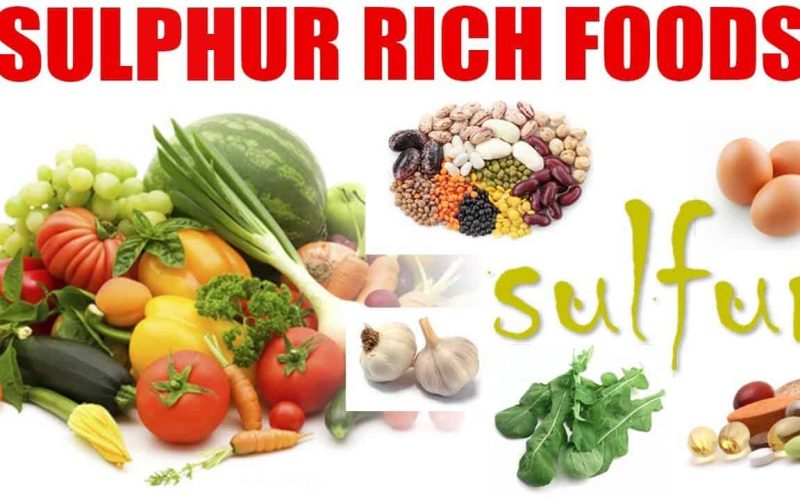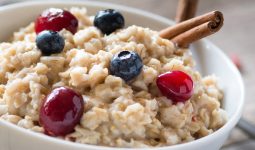Some of the safest foods on the planet are onions, garlic, kale, cabbage, and broccoli. However, have you ever wondered why these foods are considered to be very healthy?
Yes, you may guess that they contain vitamins and minerals, but asides these two, they also contain sulfur and have antioxidant qualities.
Just in case you do not know how vital sulfur is, it is an essential component for your tissues and cells.
Potential Health Benefits of Sulfur.
Some minerals are considered very important in the human body, and sulfur is one of them. It is a vital component of several amino acids, including taurine, methionine, and cysteine.
Sulfur is also added to several dietary supplements, especially supplements created for people dealing with arthritis. For example, Methylsulfonylmethane (MSM), can be obtained through supplements or diet. This sulfur compound, according to the Arthritis Foundation, can help to relieve inflammation and pain.
Some topical products that contain sulfur are also very good at preventing acne breakouts scabies seborrheic dermatitis and even treating dandruff. This means that sulfur is a beautiful beauty product asides being great for your overall health.
And whenever the ingestion of sulfur is not recommended. Since each person has a unique tolerance for products, the topical application of sulfur may lead to skin irritation and dryness on some individuals.
Eggs, onions, and cruciferous vegetables are also considered to be foods with high sulfur content and are safe for consumption. Allicin, for instance, occurs naturally in garlic, and it is a sulfur compound that is healthy.
When garlic is consumed in adequate quantity, the Allicin content may help to inhibit the growth of cancer cells and tumors, and also boost cardiovascular health, as well as destroy any antibiotic-resistant bacteria that may be in your body.
Sulfur Food Sources
Sulfur can be found in a wide range of organic foods from Oysters to Organ meats, eggs, salmon and mussels, and even leafy green vegetables.
Although not in large amounts, sulfur also occurs naturally in walnuts, almonds, and peanuts. When it comes to the best sulfur food sources, you can opt for onions and garlic because they have the highest Allicin content.
Almost everyone has noticed that hard-boiled eggs have a particular smell. The smell is due to the sulfur-containing compounds present in hard-boiled eggs.
No matter the medical condition you’re dealing with, a diet that contains sulfur-rich foods may be all you need to feel better. Sulfur is a mineral that plays an essential role in the production of the master antioxidant known as glutathione.
This antioxidant exhibits terrific detoxifying properties and also offers support to liver health. According to medical news today, it also contributes to sperm cell formation, DNA synthesis, lipid metabolism, and immune function.
However, despite how high sulfur is, there is a downside. Some individuals are intolerant or allergic to sulfur, and for this reason, they cannot enjoy the fantastic health benefits that come with eating sulfur-rich foods.
One of such cases was recorded in a study carried out in 2014 that was featured in the journal Food and Chemical Toxicology.
A woman considered to be physically fit reported experiencing swelling of the throat and mouth, itching, as well as low blood pressure after taking sports supplements and energy drinks containing taurine, which is a sulfur-containing compound. In a case like this, it only makes sense that she avoids sulfur or opt for a low sulfur diet.
Here is a list of sulfur-rich foods
Animal sources
- Turkey
- Eggs
- Beef
- Fish
- Chicken
Plant sources
- Black beans
- Brazil nuts
- Kidney beans
- Pumpkin seeds
- Quinoa
- Sesame seeds
- Soybeans
- Teff
- White beans
Other sources
- Wild rice
- Chickpeas
- Couscous
- Eggs
- Lentils
- Oats
- Soybeans
- Turkey breast
- Walnuts
- Allium vegetables (garlic, leeks, chives, onions, etc.)
- Cheese, especially cheddar and parmesan
- Cruciferous vegetables (broccoli, Brussels sprouts, cauliflower, cabbage, kale, etc.)
- Organ meats
- Garlic and Onions
Onions, garlic, leek, and other green herbs or plants in the allium genus make up the best dietary sources of sulfur. These foods contain phytonutrients, high doses of diallyl sulfide, alliin, and allicin.
In allium vegetables, allicin is identified as one of the most abundant sulfur compounds, and it exhibits anti-cancer, antimicrobial, antifungal, and cardioprotective properties.
Also, this incredible nutrient has been discovered to induce the death of cancer cells, as well as boost the function of the immune system and improve blood lipid and cholesterol metabolism. This means that if you want the best of cardiovascular health, you may have to opt for vegetables in the allium family.
A lot of people are turned off by the smell of garlic. However, it is very healthy. And to enjoy its benefits, you would need to add freshly crushed garlic to your foods.
One of the benefits you would enjoy from doing this is the strengthening of your body’s natural defense, and also enjoy protection against bacterial infection. A lot of people cook their garlic, but it is better consumed raw a freshly crushed as cooking destroys some of its active enzymes.
Cabbage and Other Cruciferous Veggies
Cauliflower, cabbage, broccoli, and other cruciferous veggies contain high sulforaphane, which is a compound that reduces DNA damage and protects the body against different types of cancer.
A study has also suggested that this sulfur compound may be helpful with the prevention of bladder cancer without causing any form of toxicity. Also, individuals will consume enough cruciferous vegetables regularly have a lower risk of developing prostate, breast, and colorectal cancer as well as a wide range of heart diseases.
Sulforaphane is another sulfur compound that has been studied for its ability to treat and prevent autism spectrum disorders, lung adenocarcinoma, Alzheimer’s disease, and oral cancer. These potential health benefits may be due to Sulforaphane’s ability to suppress inflammation, positively alter brain function, and neutralize oxidative stress.
If you’re also thinking of shedding a few pounds, eating cruciferous vegetables may be able to push you closer to achieving your weight loss goals.
The reason for this is that cruciferous vegetables are high in fiber and contain low calories, which will keep you satisfied for hours. Take, for instance, one cup of chopped cabbage contains only 22 calories, less than 1 gram of fat, and 5.1 grams of carbs.
Also, these vegetables are an excellent source of sulfur, which would help to prevent weight gain and also boost your metabolism, making it difficult for you to build up extra fats.
What About Eggs?
Vegetables are not the only foods high in sulfur. Eggs are rich in methionine, a sulfur-containing amino acid. This natural compound regulates the immune system and metabolic processes.
It also supports glutathione synthesis, protecting your cells and tissues from oxidative stress. Its potential health benefits, though, are subject to debate. Apart from cruciferous vegetables, you can also find sulfur in eggs, as I have earlier mentioned in this article.
Eggs, especially hard-boiled eggs, are rich in methionine, which is a sulfur-containing amino acid. What this natural compound does is to regulate the metabolic processes and the immune system.
It is also great at supporting glutathione synthesis as well as protecting your tissues and cells from oxidative stress. However, its potential health benefits remain subject to debate.
According to a research paper featured in the Annals of the New York Academy of Sciences in 2015, restricting the intake of methionine may lead to delay in aging and longer life. Most research was conducted on animals; thus, it is difficult to tell what the effects on humans will be.
What we can say for sure is that eggs are a great source of B-complex, protein, and vitamins. One large egg gives just 71 calories and more than 6 grams of protein. Plus, eggs are rich in vitamin A, D, and B12, as well as selenium, riboflavin, and phosphorus.
People believe that eggs are dangerous, but when consumed in moderation, they may improve appetite control, reduce your risk of heart disease, and facilitate weight loss.
Meat and Fish
Organic animal products, including seafood, meat, and fish, boast of high sulfur-containing amino acids, such as methionine and cysteine. Crab, haddock, mussels, chicken, prawns, scallops, veal, and organ meats contain the highest content of sulfur.
A single serving of boiled chicken gives you 300 milligrams of sulfur. For baked cod, you get about 230 milligrams of sulfur from each meal. Due to the high protein content of fish and meat, they increase satiety and promote weight management.
Leave a comment here telling us what about your favorite sulfur foods.








